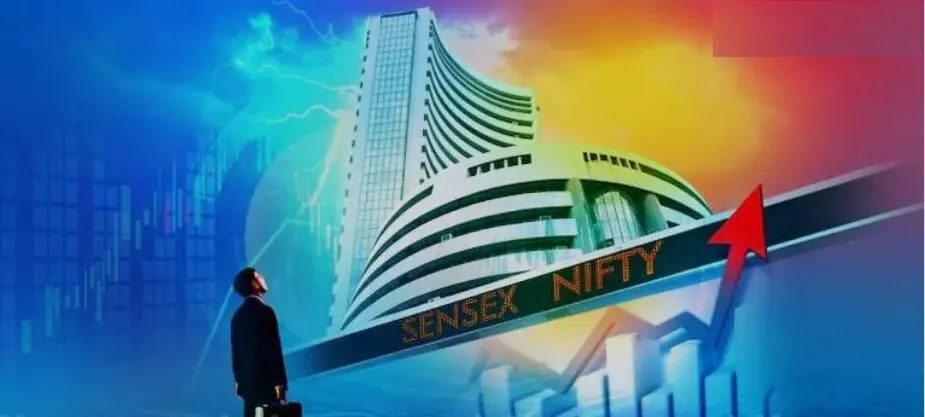Sensex to hit 82,000 in 12 months amid macro stability; global slowdown among key risks: Morgan Stanley
International rating agency Morgan Stanley has projected that the BSE Sensex will reach 82,000 within the next 12 months, driven by macroeconomic stability and policy continuity under Prime Minister Narendra Modi’s third term.
image for illustrative purpose

International rating agency Morgan Stanley has projected that the BSE Sensex will reach 82,000 within the next 12 months, driven by macroeconomic stability and policy continuity under Prime Minister Narendra Modi’s third term. This forecast implies a 14% increase from the current level, buoyed by expectations of steady earnings growth and structural economic reforms.
Key Insights from the Report:
Positive Market Outlook:
The 30-share BSE Sensex recently closed at 76,992.77. Morgan Stanley's prediction of an 82,000-point target for the Sensex over the next year indicates a potential upside of 14%.
The rating agency attributes this optimistic outlook to anticipated policy predictability and ongoing macroeconomic stability, which are expected to support market growth.
Impact of Modi's Third Term:
The re-election of the BJP-led NDA government is seen as a stabilizing force for policy-making, which should benefit economic growth and equity returns.
The government is likely to maintain a focus on inflation control and other macroeconomic stability measures.
Economic Growth Projections:
Morgan Stanley has revised India’s GDP growth forecast for 2024-25 upwards to 6.8%, with inflation expected to ease to around 4.5%.
The agency predicts that India will drive a significant portion of global growth in the coming decade, supported by a manufacturing boom, offshoring, and advances in digital infrastructure.
Earnings Growth and Reforms:
The report forecasts robust earnings growth for companies through 2025-26, with a projected growth rate 500 basis points higher than consensus estimates.
Continued structural reforms are expected, including potential tax adjustments and increased infrastructure spending, which could further enhance India’s economic resilience.
Historical Reforms and Future Prospects:
The report highlights key reforms over the past decade, such as the introduction of the GST, the bankruptcy code, and lower corporate tax rates, which have strengthened India's economic structure.
More reforms are anticipated, particularly in areas like consumer markets, energy, financial services, and industrials, which could drive further market gains.
Global and Domestic Risks:
Despite the positive outlook, Morgan Stanley notes several risks, including global economic slowdown, bureaucratic constraints, and sector-specific challenges such as low productivity in agriculture and climate change impacts.
The report cautions that geopolitical issues and inadequate factor reforms could pose significant challenges to India’s economic progress.
Investor Expectations and Government Actions:
Investors are looking forward to potential government actions, including rationalizing GST rates, particularly in sectors like cement and hybrid vehicles.
The upcoming budget may also introduce initiatives to reduce logistics costs and bolster sectors such as defense, electronics, and renewable energy.
Bull Market Prospects:
Morgan Stanley believes India is poised for its longest and strongest bull market, with equity returns expected to compound annually by 12-15% over the next five years.
The report advises investors to stay invested, despite the potential for a global growth slowdown to impact India's growth and investment inflows.
Morgan Stanley’s report suggests a favorable outlook for the Indian stock market, driven by sustained economic growth and supportive government policies. While acknowledging various risks, the report remains confident in India's capacity to maintain strong market performance in the coming years.

